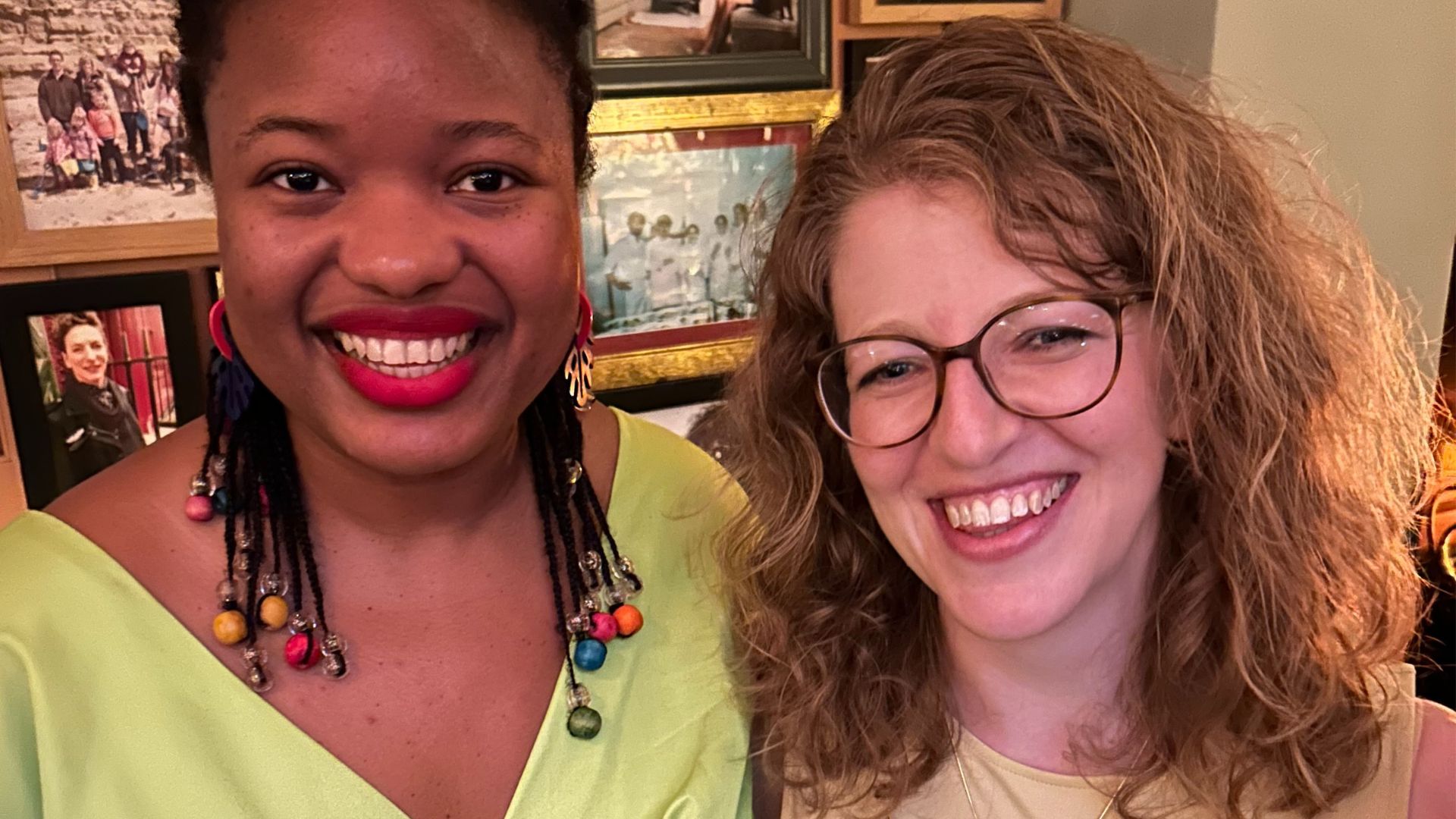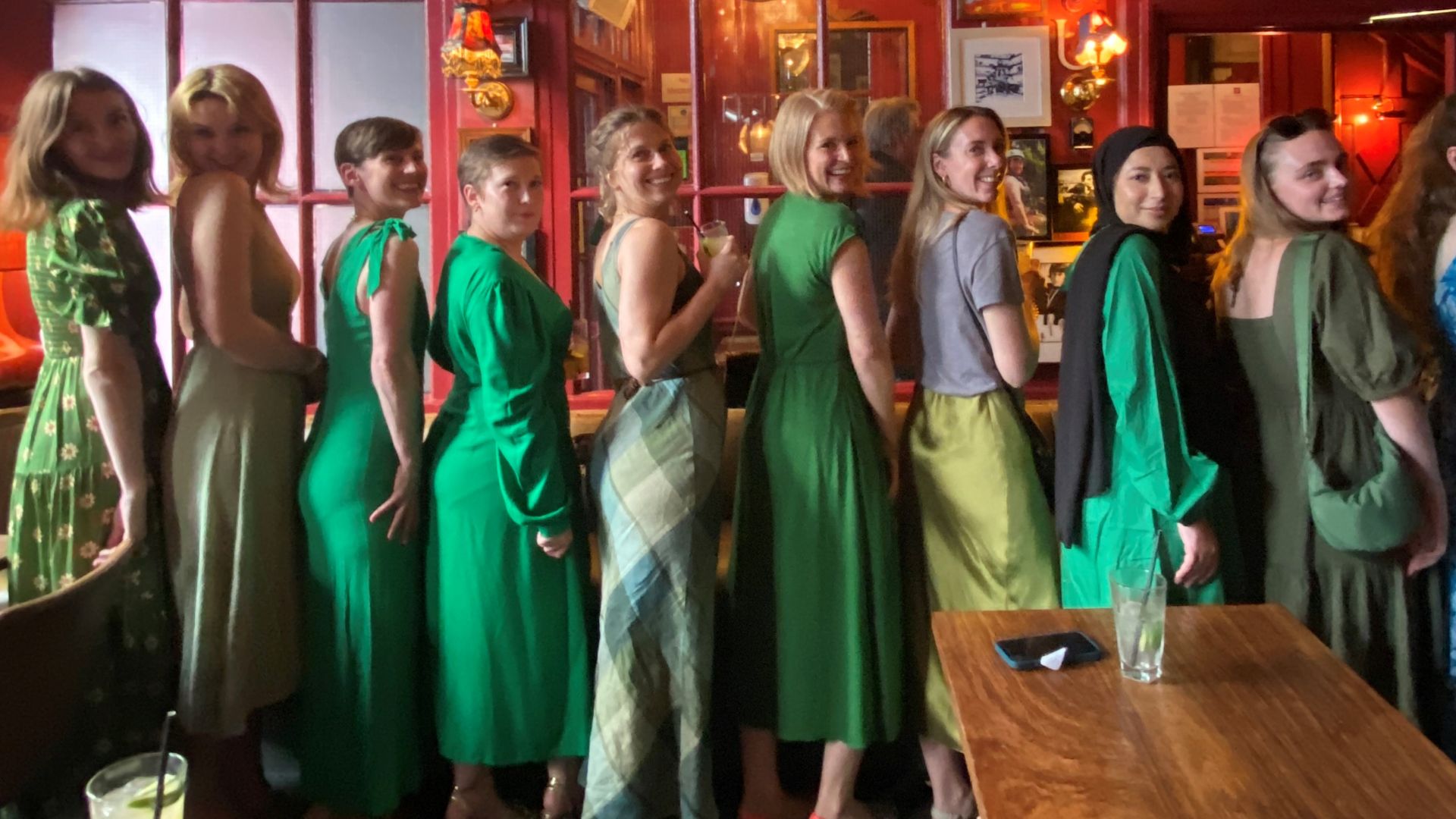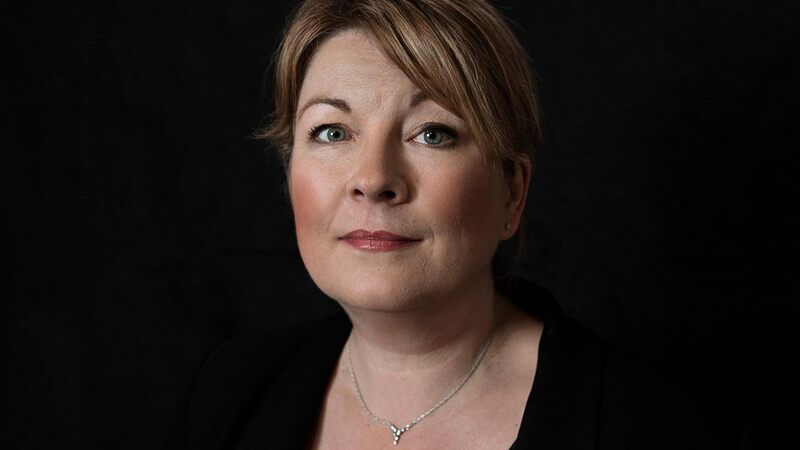You are viewing your 1 free article this month. Login to read more articles.
Virago party celebrates 50 years of feminist publishing
Authors Grace Nichols, Sarah Waters and Natasha Walter – all with titles chosen as Virago’s 50th anniversary celebration iconic "Gold Reads" – were among guests present at a party on Wednesday (21st June) to celebrate 50 years of the feminist publisher, at The Union Club in London’s Soho.
Also there on the night was the author of the very first published Virago title – Fenwomen: A Portrait of Women in an English Village – Mary Chamberlain, whose book came out in 1975; plus a raft of past Virago publishing stalwarts including Marsha Rowe, Ursula Owen, Harriet Spicer, Alexandra Pringle, Ruthie Petrie, Lynn Knight and Kate Griffin.
Thanking the many who have supported the imprint over its 50 years, Virago chair Lennie Goodings, who has been with the publisher since the late 1970s, noted that when Virago was first launched, founder Carmen Callil had to ask two men to guarantee the fledgling house’s bank overdraft which "tells you something of the time".
"Aside from the fact that women can now get their own bank loans, what I am most struck by in reviewing the changes over these years is the power of the voice of women," she said. "When Virago began it was thought that a woman’s voice hadn’t even the authority for news reading. Today we can hear that voice loud and clear – most particularly, gloriously, effectively on the page.
"We have certainly not yet changed the world – the original immodest aim of Virago and one we still hold passionately today – but by demanding change, by demanding that we are heard and that we are read, we all have made a difference."
She added: "Every anniversary – despite begin successful, despite our high profile, despite our reputation, despite our thousands of readers, despite having published over 4,000 titles and 1,000 authors – we’re asked is Virago still necessary? I am here to tell you – it’s ain’t over yet!"
Publisher Sarah Savitt said that Virago reaching 50 – which could be called "middle-aged" – certainly hadn’t made the imprint invisible, as many middle-aged women are said to become.
Savitt said: "We’re proud that our championing of the writing of women and people of underrepresented genders means that we’re still a visible, vital force in publishing, literature and feminism."
She identified the qualities that make a Virago writer as "feminism, originality, fearlessness, independence, creativity, subversion, surprise, intelligence and wit".





















